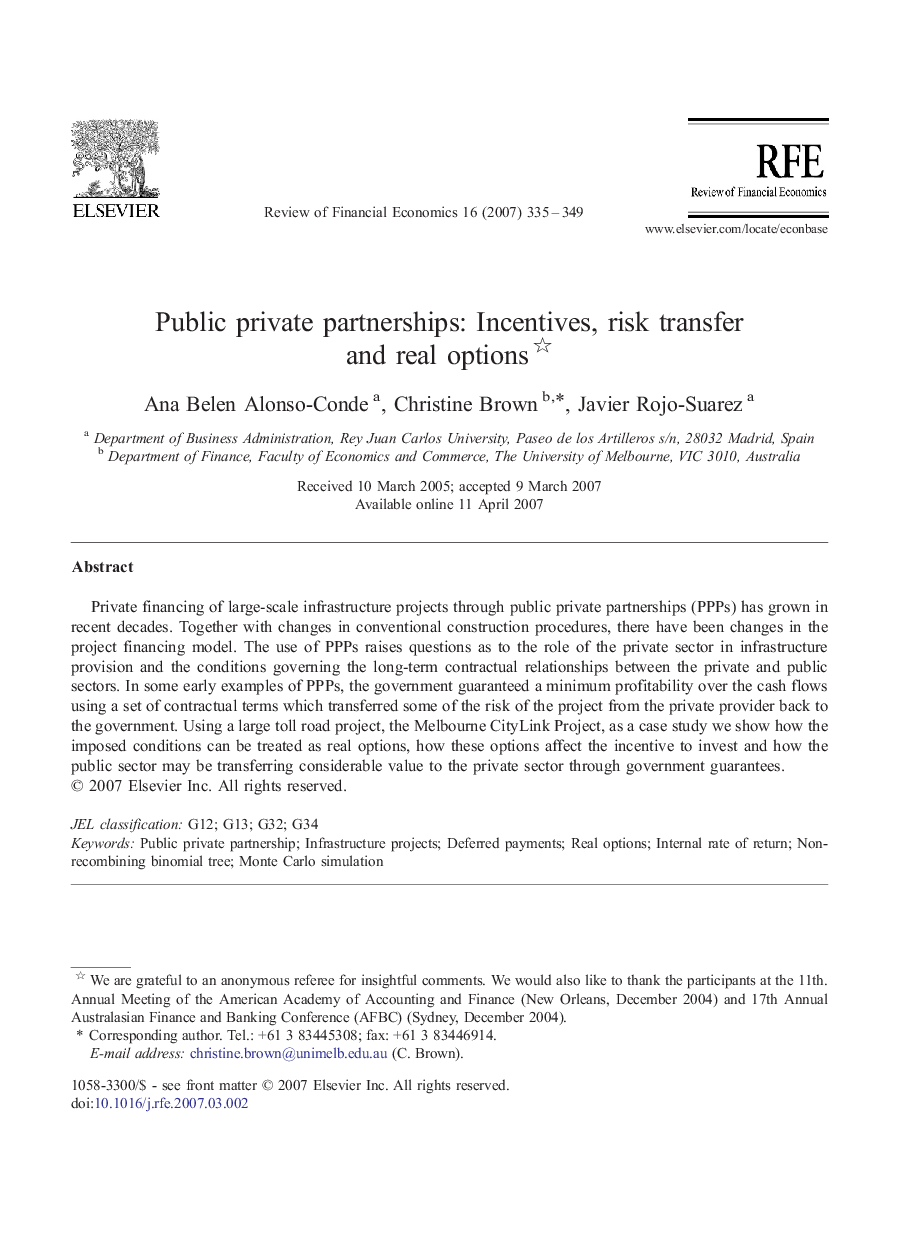| Article ID | Journal | Published Year | Pages | File Type |
|---|---|---|---|---|
| 986777 | Review of Financial Economics | 2007 | 15 Pages |
Private financing of large-scale infrastructure projects through public private partnerships (PPPs) has grown in recent decades. Together with changes in conventional construction procedures, there have been changes in the project financing model. The use of PPPs raises questions as to the role of the private sector in infrastructure provision and the conditions governing the long-term contractual relationships between the private and public sectors. In some early examples of PPPs, the government guaranteed a minimum profitability over the cash flows using a set of contractual terms which transferred some of the risk of the project from the private provider back to the government. Using a large toll road project, the Melbourne CityLink Project, as a case study we show how the imposed conditions can be treated as real options, how these options affect the incentive to invest and how the public sector may be transferring considerable value to the private sector through government guarantees.
